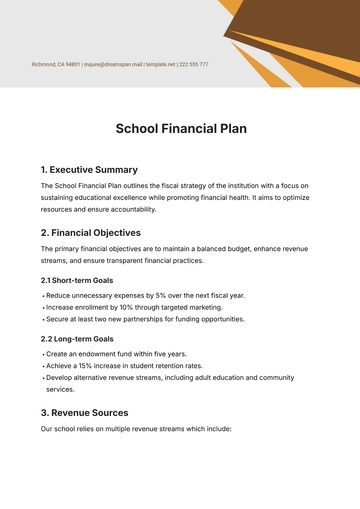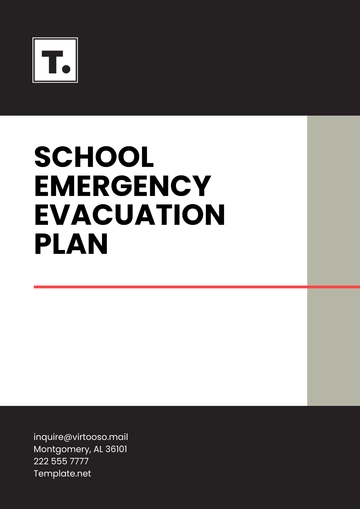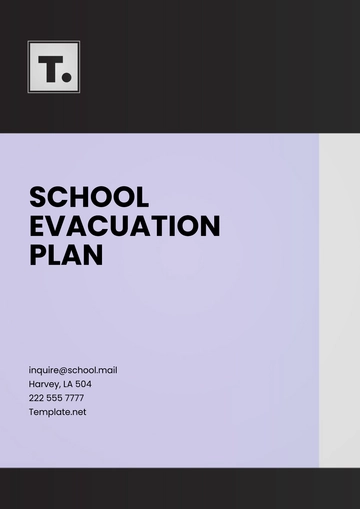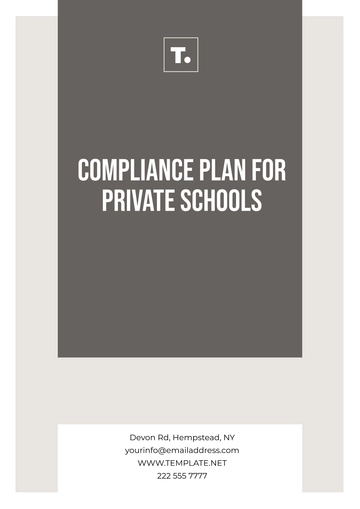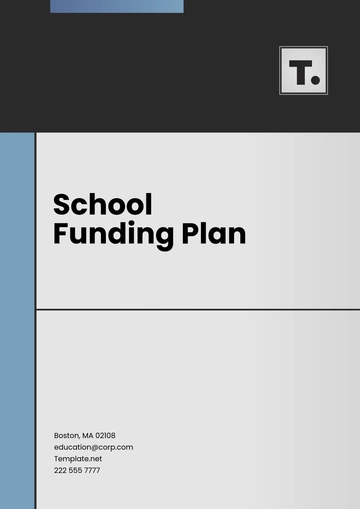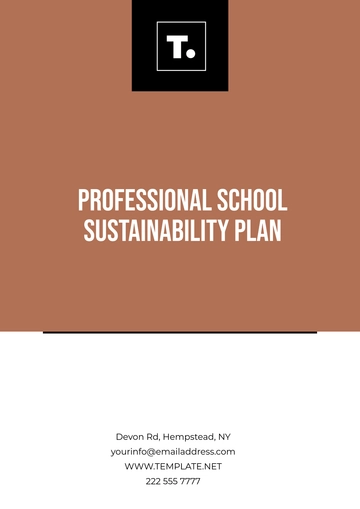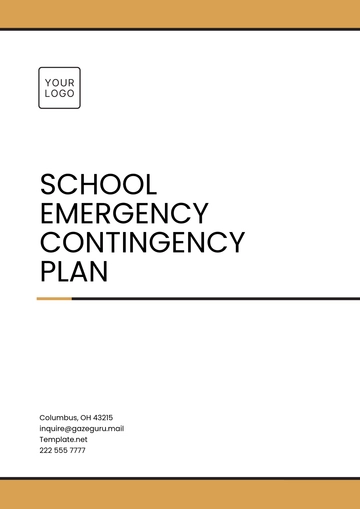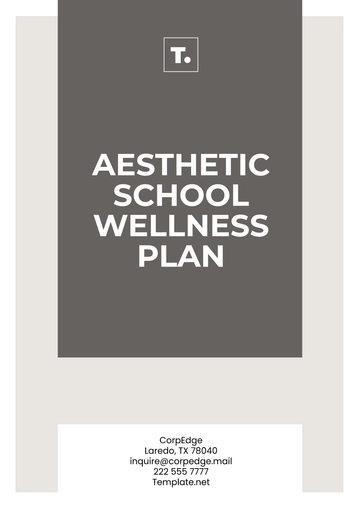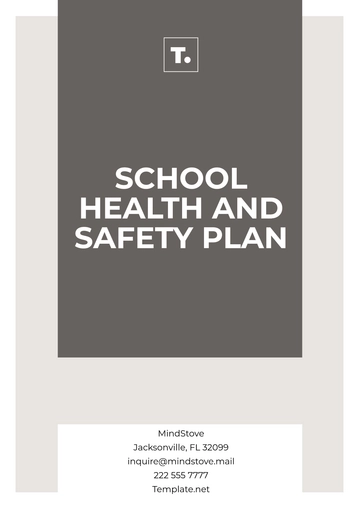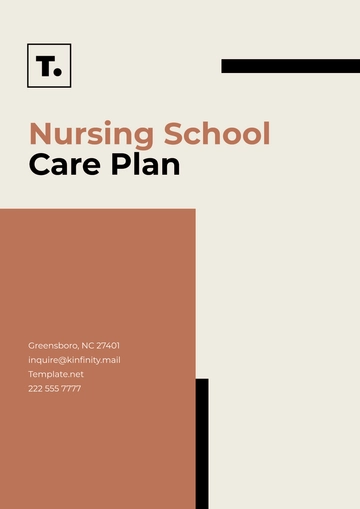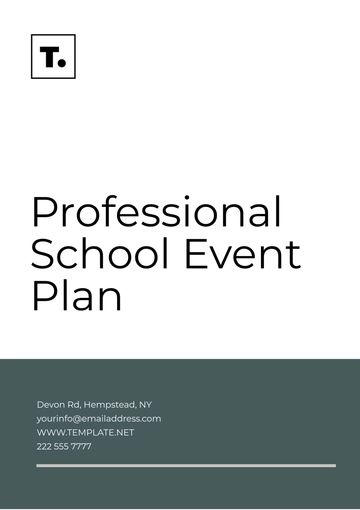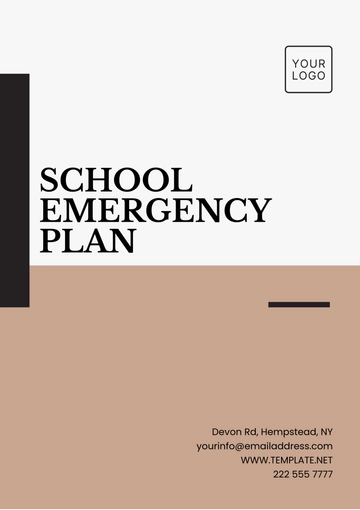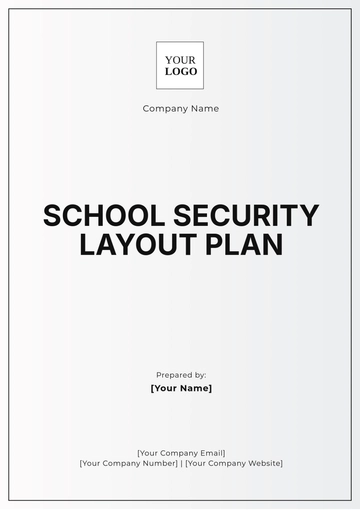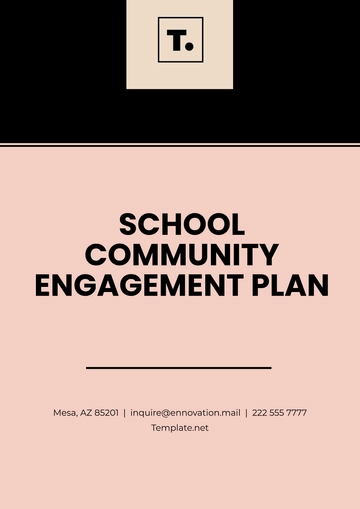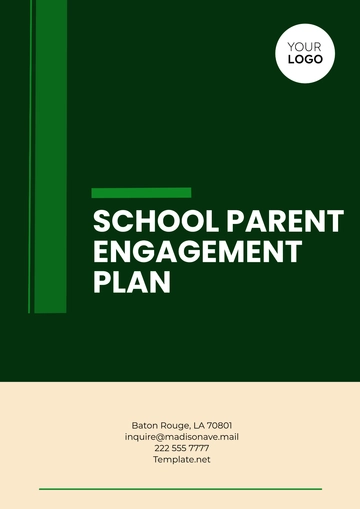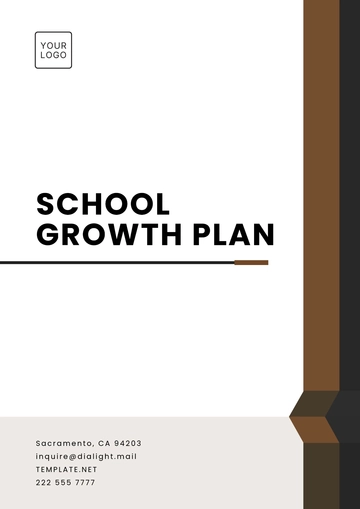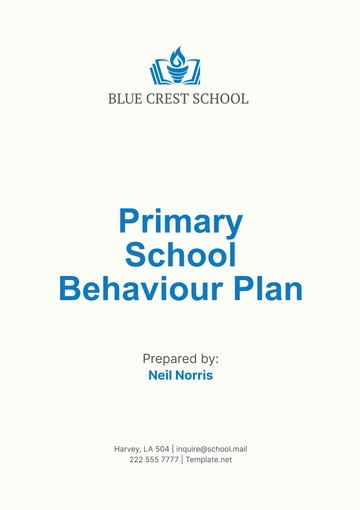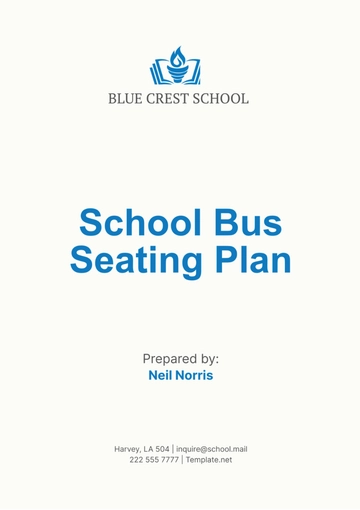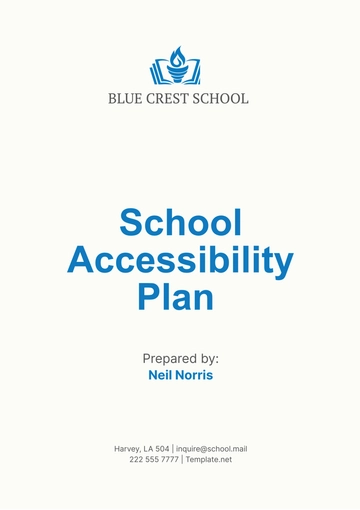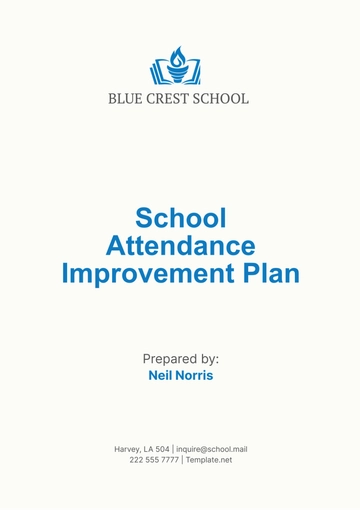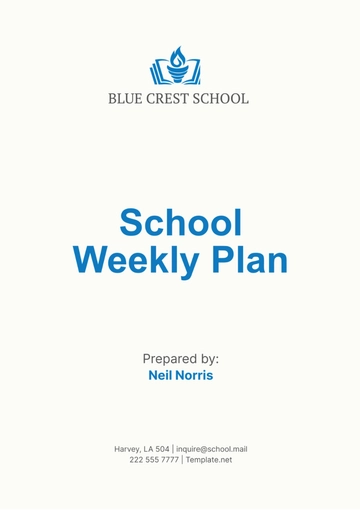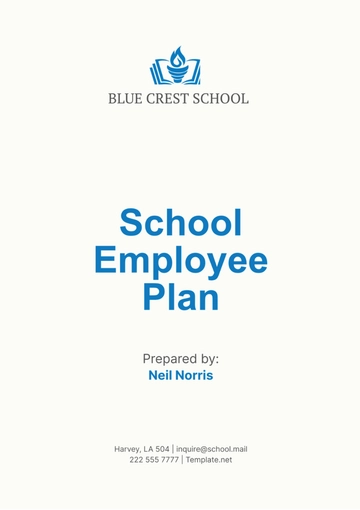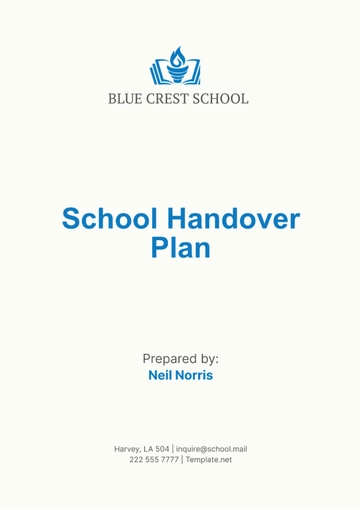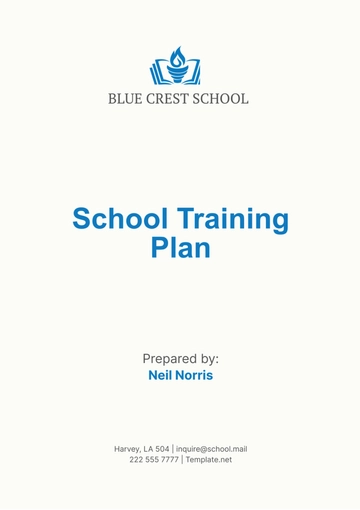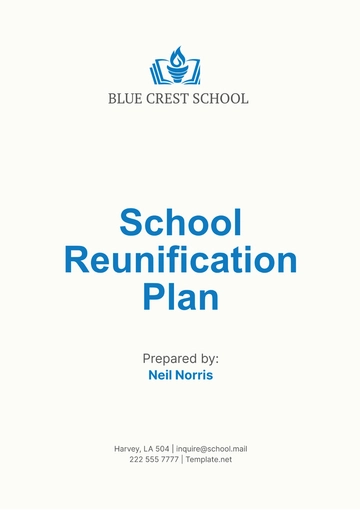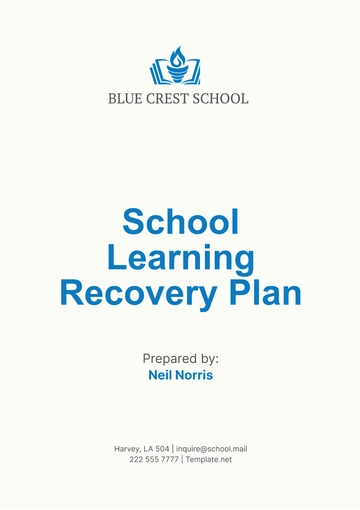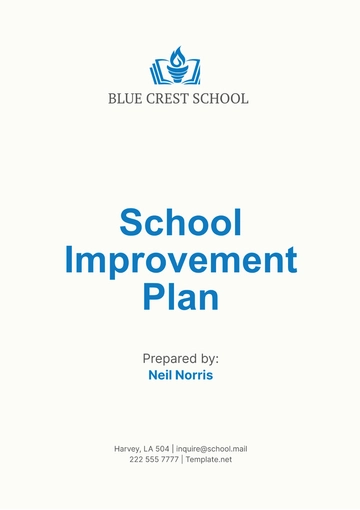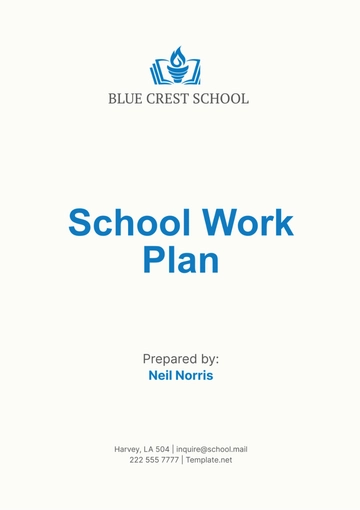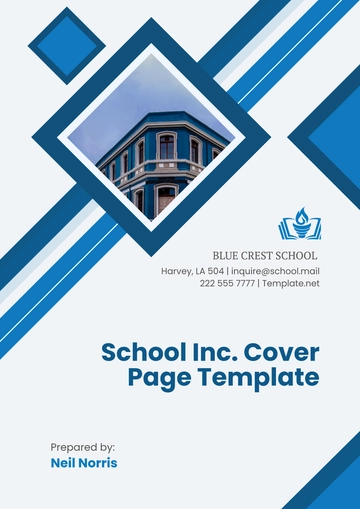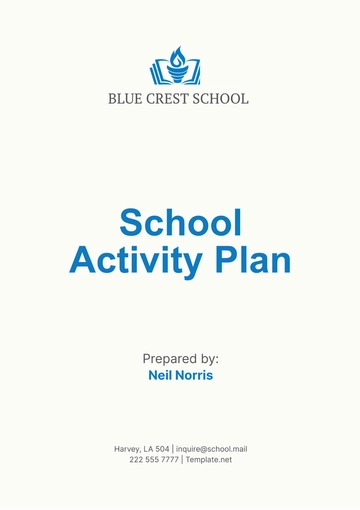Free School Weekly Plan
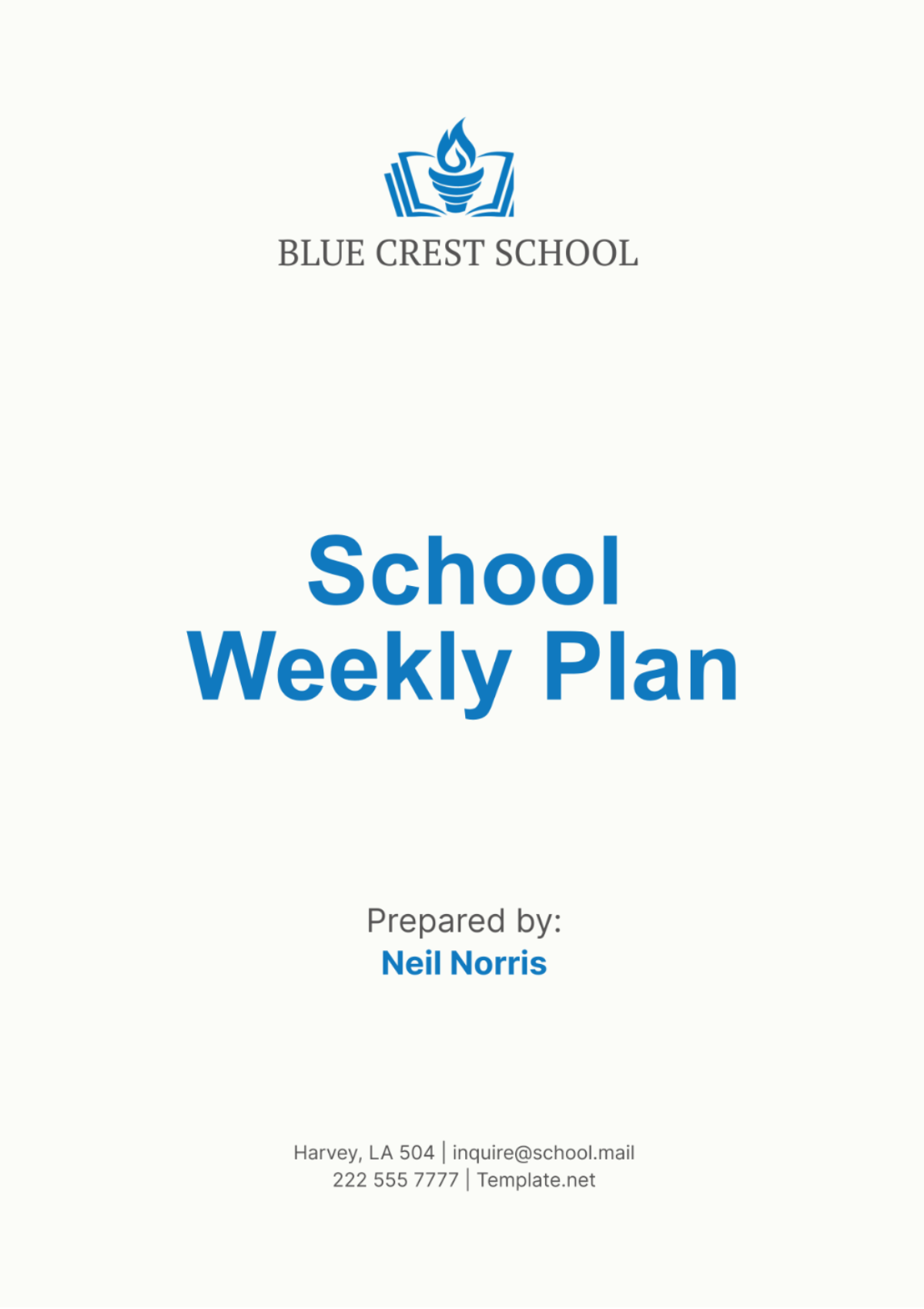
I. Introduction
A. Purpose of the Weekly Plan
The School Weekly Plan serves as a comprehensive blueprint to ensure seamless and efficient execution of academic and extracurricular activities at [Your Company Name]. By outlining clear objectives and schedules, the plan provides educators with a structured framework to deliver high-quality education and supports students in achieving their academic goals. This plan also helps in coordinating resources, managing time effectively, and maintaining alignment with the school’s broader educational vision. Additionally, it fosters collaboration among teachers, staff, and administrators, ensuring that all stakeholders are on the same page.
B. Overview of the Week
This week at [Your Company Name] is designed to engage students with a variety of learning experiences that combine rigorous academics with enriching extracurricular activities. The focus will be on applying innovative teaching methods to enhance student understanding and retention of core concepts across subjects. In addition to regular classes, students will participate in special events and activities aimed at broadening their horizons and fostering a sense of community. This holistic approach aims to create a dynamic and inclusive educational environment where every student can thrive.
II. General Information
A. School Name and Week Number
[Your Company Name], Week 5
As we enter the fifth week of the academic year, [Your Company Name] continues its commitment to excellence in education. This plan covers all activities and lessons scheduled from Monday, [Date] to Friday, [Date], ensuring a well-organized and productive week for all students and staff.
B. Dates Covered
Monday, [Date] - Friday, [Date]
These dates mark an exciting period where students will delve deeper into their subjects and participate in various interactive sessions. The week includes special events, guest lectures, and a field trip designed to complement the academic curriculum and provide real-world learning experiences.
C. Contact Information
Curriculum Coordinator: Ms. [Coordinator's Name]
Contact: [Coordinator's Number], [Coordinator's Email]
For any questions or additional information regarding the weekly plan, please contact the curriculum coordinator. They are available to provide support and address any concerns that may arise throughout the week.
III. Weekly Objectives
A. Academic Goals
Mathematics
This week, students will focus on understanding and applying geometric principles, including the identification and classification of polygons and the calculation of their perimeter and area. The lessons are designed to enhance spatial reasoning and problem-solving skills, which are crucial for success in higher-level mathematics.
Additionally, students will engage in data analysis activities, interpreting and drawing conclusions from various graphical representations. These skills are essential for developing critical thinking and analytical abilities, which are applicable across multiple disciplines.
English Language Arts
In English Language Arts, students will embark on a journey of narrative writing, where they will brainstorm, draft, and refine original stories. The focus will be on developing well-rounded characters and cohesive plotlines, enhancing their creative expression and writing skills.
Students will also engage in literary analysis, examining themes and symbols in selected texts. This will deepen their understanding of literary elements and improve their ability to critically analyze and interpret literature.
B. Social and Emotional Learning (SEL) Goals
[Your Company Name] is dedicated to fostering a supportive and inclusive environment where students develop essential social and emotional skills. This week, SEL initiatives will focus on building empathy through collaborative projects and activities that encourage students to understand and appreciate diverse perspectives.
Additionally, students will participate in activities designed to enhance their resilience and self-management skills, helping them navigate academic challenges and personal growth effectively. These SEL goals are integrated into the curriculum to support holistic student development and create a positive school culture.
IV. Schedule Overview
A. Daily Schedule
Classes at [Your Company Name] begin promptly at 8:00 AM and conclude at 3:00 PM. The structured schedule includes dedicated time for core academic subjects, elective courses, and physical education, ensuring a balanced educational experience for all students.
Lunch is scheduled from 12:00 PM to 1:00 PM, providing students with a much-needed break to recharge and socialize. The daily schedule is designed to optimize learning while allowing time for relaxation and peer interaction.
B. Special Events
Tuesday
The week kicks off with an inspiring Science Fair assembly, where students will present their projects and share their scientific discoveries. This event encourages scientific inquiry and creativity, providing a platform for students to showcase their hard work and innovative ideas.
Thursday
On Thursday, a guest speaker specializing in environmental sustainability will visit the school. This presentation aims to educate students on the importance of sustainable practices and inspire them to take action towards protecting the environment.
Friday
The week concludes with a field trip to the local museum for history students. This excursion will provide hands-on learning experiences, allowing students to explore historical artifacts and gain a deeper understanding of historical events and cultures.
C. Extracurricular Activities
[Your Company Name] offers a variety of extracurricular activities to cater to diverse student interests and talents. This week, the Debate Club will hold practice sessions on Wednesday afternoon, providing students with opportunities to hone their public speaking and critical thinking skills.
Additionally, the soccer team will practice every day after school, preparing for upcoming competitions. These activities aim to promote physical fitness, teamwork, and personal growth outside the classroom.
V. Curriculum Focus
A. Mathematics
Lesson 1: Geometric Shapes
a. Objectives
Students will identify, classify, and analyze different types of polygons, understanding their properties and relationships. This will include calculating the perimeter and area of various shapes, reinforcing their spatial reasoning and mathematical skills.
b. Activities
Hands-on activities using geometric manipulatives will allow students to construct and explore different shapes. Group work will encourage collaboration and problem-solving, as students create and solve geometry-based problems together.
c. Materials Needed
Geometric shapes sets, including rulers, protractors, and compasses, will be essential for hands-on learning. Whiteboards and markers will facilitate group discussions and problem-solving activities.
d. Assessment
Formative assessment through peer evaluation will help students reflect on their learning and understand different approaches to solving geometric problems.
Lesson 2: Data Analysis
a. Objectives
Students will interpret data from bar graphs and pie charts, drawing meaningful conclusions and making predictions based on observed trends. This will enhance their ability to analyze and communicate data effectively.
b. Activities
Students will analyze real-world data sets, identifying trends and patterns. They will present their findings using visual aids and participate in class discussions to justify their conclusions.
c. Materials Needed
Data sets relevant to student interests (e.g., favorite sports, music genres) will be used to make the activity engaging and relatable. Projectors and laptops will be utilized for presentations and data analysis.
d. Assessment
A summative assessment, in the form of a data analysis quiz, will evaluate students' understanding of graphical data representation and their ability to interpret data accurately.
B. English Language Arts
Lesson 1: Narrative Writing
a. Objectives
Students will develop their narrative writing skills by creating engaging stories with well-developed characters and cohesive plots. This will include practicing the use of literary devices to enhance their storytelling.
b. Activities
Through brainstorming sessions, students will generate story ideas and draft narratives. Peer collaboration and individual reflection will be encouraged to refine their writing.
c. Materials Needed
Writing prompts will provide inspiration and guidance for narrative creation. Writing journals or digital writing platforms will be used for drafting and revising stories.
d. Assessment
Peer review and self-assessment using rubrics will help students evaluate their narratives and identify areas for improvement, focusing on narrative structure, character development, and language use.
Lesson 2: Literary Analysis
a. Objectives
Students will analyze themes and symbols in selected literary texts, understanding how these elements contribute to the overall meaning of the work. This will enhance their critical thinking and analytical skills.
b. Activities
Close reading of selected passages will allow students to identify key themes and symbols. Group discussions and Socratic seminars will deepen their understanding through collaborative inquiry and debate.
c. Materials Needed
Literary texts (short stories, poems, or novel excerpts) will be used for analysis. Discussion guides and annotation tools will aid in close reading and interpretation.
d. Assessment
Students will write analytical essays or create presentations demonstrating their understanding of literary themes and symbols. This assessment will evaluate their ability to critically analyze and articulate their interpretations.
VI. Professional Development and Collaboration
A. Teacher Meetings
Departmental meetings will be held on Monday afternoon to discuss curriculum alignment and instructional strategies. These meetings provide an opportunity for teachers to share insights and best practices, ensuring consistency and coherence in teaching across different grade levels and subjects.
On Friday morning, grade-level team meetings will focus on reviewing student progress and addressing any challenges encountered during the week. This collaborative approach allows teachers to support each other and develop effective interventions for students who need additional help.
B. Professional Development Workshops
A professional development workshop on Wednesday will cover the integration of technology in the classroom. Teachers will explore various digital tools and platforms that can enhance student engagement and learning outcomes.
The workshop will also include hands-on sessions where teachers can practice using these tools and plan how to incorporate them into their lessons. This ongoing professional development ensures that teachers are equipped with the latest educational technologies and methodologies.
C. Departmental Meetings
The Science department will meet on Thursday to review upcoming lab experiments and discuss safety protocols. This meeting aims to ensure that all science teachers are prepared and that laboratory activities run smoothly and safely.
Additionally, the English department will hold a meeting to discuss strategies for enhancing student writing skills and preparing for upcoming standardized tests. These meetings foster collaboration and continuous improvement within each department.
VII. Student Support
A. Special Education Services
Individualized Education Program (IEP) meetings will be scheduled as needed to review and update plans for students requiring special education services. These meetings involve teachers, parents, and specialists working together to ensure that each student's needs are met effectively.
Throughout the week, special education teachers will provide targeted support and interventions to help students achieve their academic and personal goals. Collaboration with general education teachers ensures that accommodations and modifications are implemented consistently.
B. Counseling Availability
School counselors will be available daily to provide academic advising, emotional support, and career guidance to students. Counselors will also conduct group sessions on topics such as stress management, study skills, and college preparation.
In addition, counselors will work closely with teachers to identify students who may need extra support and develop strategies to address their needs. This comprehensive approach ensures that all students have access to the resources and support necessary for their success.
VIII. Administrative Tasks
A. Grading and Record-Keeping
Teachers are reminded to submit grades by Wednesday afternoon to ensure timely feedback for students and parents. Regular updates to the grade book help monitor student progress and identify areas where additional support may be needed.
Attendance records should be updated daily to maintain accurate documentation and address any attendance issues promptly. Consistent record-keeping is essential for tracking student performance and ensuring accountability.
B. Communication with Parents
A weekly newsletter will be sent out on Monday, outlining the week's activities, upcoming events, and important announcements. This newsletter keeps parents informed and engaged with their child's education.
Parent-teacher conferences are scheduled for Thursday evening to discuss student progress, address concerns, and collaborate on strategies to support student learning. These conferences provide valuable opportunities for building strong partnerships between parents and teachers.
IX. Reflection and Adjustment
A. Review of Previous Week's Plan
At the start of the week, teachers will review the previous week's plan to assess student learning outcomes and the effectiveness of instructional strategies. This reflection helps identify successful practices and areas needing improvement.
Teachers will also analyze assessment data to determine if students met the learning objectives and make necessary adjustments to their teaching plans. Continuous reflection and adjustment are key to maintaining high standards of education.
B. Adjustments for Next Week
Based on the review, teachers will modify lesson plans to better meet the needs of their students. This may include incorporating additional resources, changing instructional approaches, or providing extra support for struggling students.
Adjustments will also be made to accommodate any upcoming events or changes in the school schedule. Flexibility and responsiveness are essential for adapting to the dynamic educational environment.
X. Conclusion
A. Closing Remarks
As we conclude the week, it is important to acknowledge the hard work and dedication of both students and staff. Their collective efforts contribute to the positive learning environment at [Your Company Name].
Teachers are encouraged to continue fostering a supportive and engaging classroom atmosphere where every student can succeed. Continuous improvement and collaboration are the cornerstones of our educational philosophy.
B. Next Steps
Teachers will begin preparing materials and resources for the following week's lessons, ensuring that they are well-organized and ready to implement. Advance preparation helps maintain a smooth and effective teaching process.
Communication with students and parents about any upcoming changes or events will ensure that everyone is informed and prepared. Keeping open lines of communication is essential for building a strong school community.
- 100% Customizable, free editor
- Access 1 Million+ Templates, photo’s & graphics
- Download or share as a template
- Click and replace photos, graphics, text, backgrounds
- Resize, crop, AI write & more
- Access advanced editor
Create an organized and efficient classroom with the School Weekly Plan Template from Template.net. This editable and customizable template helps streamline your weekly schedule, goals, and activities. Easily tailor it to your needs using our intuitive AI Editor Tool. Perfect for educators seeking to enhance productivity and focus in their teaching environment.
You may also like
- Finance Plan
- Construction Plan
- Sales Plan
- Development Plan
- Career Plan
- Budget Plan
- HR Plan
- Education Plan
- Transition Plan
- Work Plan
- Training Plan
- Communication Plan
- Operation Plan
- Health And Safety Plan
- Strategy Plan
- Professional Development Plan
- Advertising Plan
- Risk Management Plan
- Restaurant Plan
- School Plan
- Nursing Home Patient Care Plan
- Nursing Care Plan
- Plan Event
- Startup Plan
- Social Media Plan
- Staffing Plan
- Annual Plan
- Content Plan
- Payment Plan
- Implementation Plan
- Hotel Plan
- Workout Plan
- Accounting Plan
- Campaign Plan
- Essay Plan
- 30 60 90 Day Plan
- Research Plan
- Recruitment Plan
- 90 Day Plan
- Quarterly Plan
- Emergency Plan
- 5 Year Plan
- Gym Plan
- Personal Plan
- IT and Software Plan
- Treatment Plan
- Real Estate Plan
- Law Firm Plan
- Healthcare Plan
- Improvement Plan
- Media Plan
- 5 Year Business Plan
- Learning Plan
- Marketing Campaign Plan
- Travel Agency Plan
- Cleaning Services Plan
- Interior Design Plan
- Performance Plan
- PR Plan
- Birth Plan
- Life Plan
- SEO Plan
- Disaster Recovery Plan
- Continuity Plan
- Launch Plan
- Legal Plan
- Behavior Plan
- Performance Improvement Plan
- Salon Plan
- Security Plan
- Security Management Plan
- Employee Development Plan
- Quality Plan
- Service Improvement Plan
- Growth Plan
- Incident Response Plan
- Basketball Plan
- Emergency Action Plan
- Product Launch Plan
- Spa Plan
- Employee Training Plan
- Data Analysis Plan
- Employee Action Plan
- Territory Plan
- Audit Plan
- Classroom Plan
- Activity Plan
- Parenting Plan
- Care Plan
- Project Execution Plan
- Exercise Plan
- Internship Plan
- Software Development Plan
- Continuous Improvement Plan
- Leave Plan
- 90 Day Sales Plan
- Advertising Agency Plan
- Employee Transition Plan
- Smart Action Plan
- Workplace Safety Plan
- Behavior Change Plan
- Contingency Plan
- Continuity of Operations Plan
- Health Plan
- Quality Control Plan
- Self Plan
- Sports Development Plan
- Change Management Plan
- Ecommerce Plan
- Personal Financial Plan
- Process Improvement Plan
- 30-60-90 Day Sales Plan
- Crisis Management Plan
- Engagement Plan
- Execution Plan
- Pandemic Plan
- Quality Assurance Plan
- Service Continuity Plan
- Agile Project Plan
- Fundraising Plan
- Job Transition Plan
- Asset Maintenance Plan
- Maintenance Plan
- Software Test Plan
- Staff Training and Development Plan
- 3 Year Plan
- Brand Activation Plan
- Release Plan
- Resource Plan
- Risk Mitigation Plan
- Teacher Plan
- 30 60 90 Day Plan for New Manager
- Food Safety Plan
- Food Truck Plan
- Hiring Plan
- Quality Management Plan
- Wellness Plan
- Behavior Intervention Plan
- Bonus Plan
- Investment Plan
- Maternity Leave Plan
- Pandemic Response Plan
- Succession Planning
- Coaching Plan
- Configuration Management Plan
- Remote Work Plan
- Self Care Plan
- Teaching Plan
- 100-Day Plan
- HACCP Plan
- Student Plan
- Sustainability Plan
- 30 60 90 Day Plan for Interview
- Access Plan
- Site Specific Safety Plan
